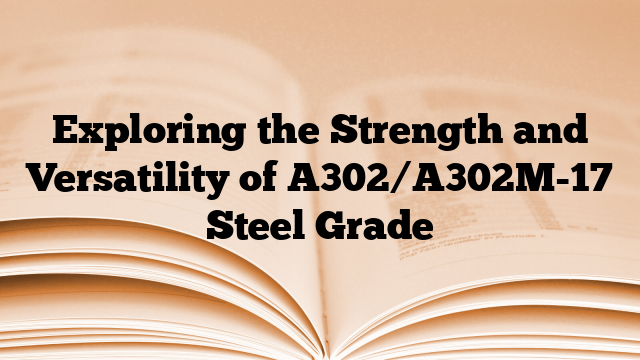The A302/A302M-17 steel grade is a low alloy manganese-molybdenum steel that finds its application in the construction of pressure vessels. It is primarily used in the fabrication of welded boilers and pressure vessels for moderate and lower temperature service.
Chemical Composition:
The chemical composition of A302/A302M-17 steel grade is as follows:
– Carbon (C): 0.25%
– Manganese (Mn): 1.15-1.50%
– Phosphorus (P): 0.035%
– Sulfur (S): 0.035%
– Silicon (Si): 0.15-0.40%
– Nickel (Ni): 0.60-1.00%
– Molybdenum (Mo): 0.45-0.60%
These elements contribute to the overall strength and corrosion resistance of the steel grade.
Mechanical Properties:
The A302/A302M-17 steel grade exhibits excellent mechanical properties that make it suitable for pressure vessel applications. Some of the important mechanical properties are:
– Tensile Strength: The minimum tensile strength of the steel grade is 515-655 MPa, depending on the thickness of the material.
– Yield Strength: The minimum yield strength of the steel grade is 310 MPa.
– Elongation: The minimum elongation of the steel grade is 15% in 2 inches.
Standard Number:
A302/A302M-17 is the standard number assigned to this specific steel grade by the American Society for Testing and Materials (ASTM). This standard specifies the requirements for carbon, manganese, and molybdenum alloy steel plates designed for welded boilers and pressure vessels.
Corresponding:
The A302/A302M-17 steel grade corresponds to other international grades such as:
– EN 10028-2 P295GH
– DIN 17155 17Mn4
– JIS G3119 SBV1A
– BS 1501-224 Gr. 490
These corresponding grades have similar chemical compositions and mechanical properties, making them interchangeable in certain applications.

